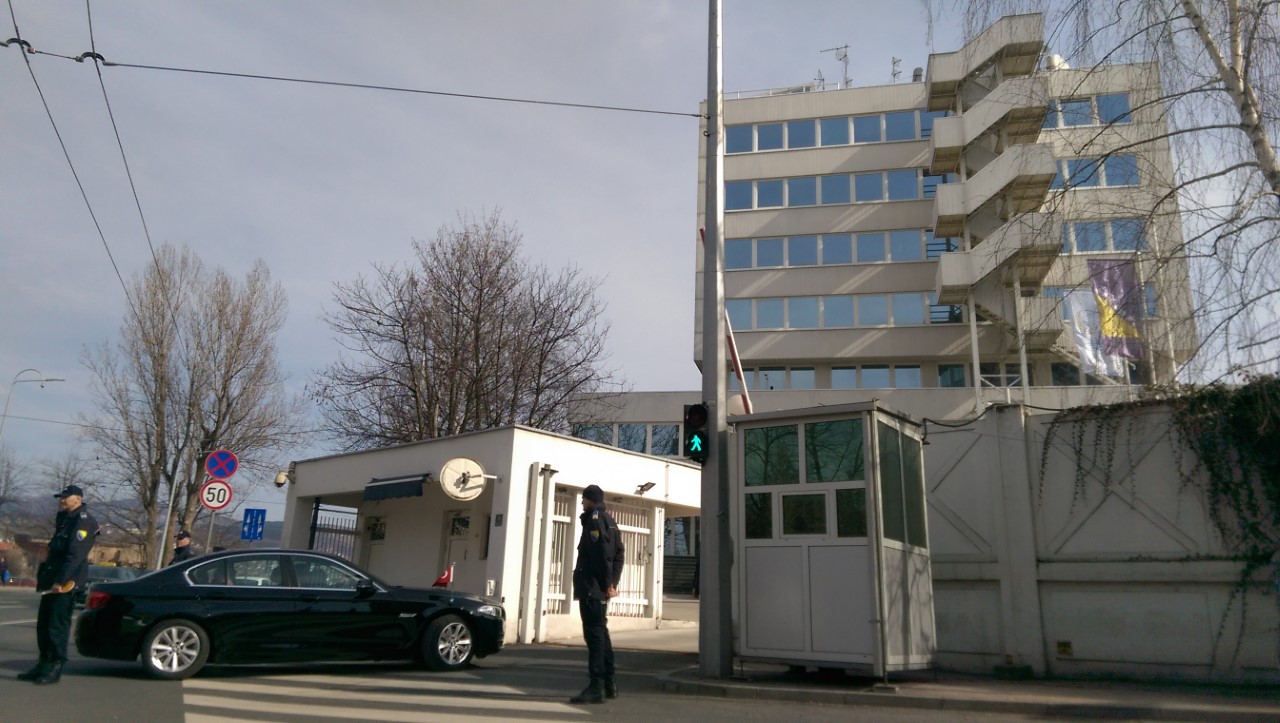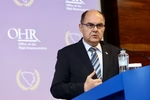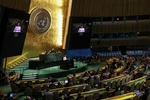
The OSCE Mission to Bosnia and Herzegovina, U.S. Embassy and the Office of the High Representative (OHR) in Bosnia strongly condemn the cynical utilisation of the Srebrenica Commission’s Report of 2004 for political purposes in the run-up to the elections.
The Serb-dominated semi-autonomous Republika Srpska (RS) entity parliament held a session on Tuesday at the initiative by RS President Milorad Dodik and adopted a conclusion demanding from the RS Government to annul the Commission on Srebrenica’s Report concerning the events that took place in that town in July 1995.
Dodik earlier said that the report was "tendentiously created” and assessed it as “a fake report created to torture Serbs and change the nature of the war in Bosnia."
"The politicisation of the Report does not serve the interests of justice and reconciliation, undermines the rule of law, does not represent European values, and ultimately threatens the delivery of justice to war crimes victims of all ethnicities," the statement said.
The OSCE, US Embassy and the OHR, which overseed the civilian implementation of the Dayton Peace Agreement which ended the war in Bosnia (1992-1995), say the report helped enable Bosnia’s communities to move forward and to strive towards reconciliation and peace. Many of its findings have been verified and confirmed by the verdicts of international, domestic, and foreign courts.
"The fact that genocide was perpetrated in Srebrenica in 1995 has been confirmed by two international courts. These facts will not change, no matter the effort put forth to rewrite history. To be clear, no one is demonizing the RS or speaking of collective responsibility for the RS or Serbs, as the RS President and others have claimed. There are victims on all sides and these include Serbs," they stressed.
Upon its adoption, the Report represented an important step forward in the effort to deliver justice. These efforts continue today. The OSCE Mission to BiH has repeatedly highlighted that prosecutors’ offices and courts at the Federation of Bosnia and Herzegovina (FBiH) entity, RS, and Brcko District level, as well as the state Prosecutor’s Office and Court, have now completed almost 500 such cases, the statement said.
Bosnia and Herzegovina consists of two entities, the Croat-Bosniak dominated FBiH, Serb-dominated RS, and the District of Brcko, not dominated by either of the three constituent peoples in the country.
"The judicial institutions of Bosnia and Herzegovina have demonstrated a strong commitment to establishing the truth and ensuring that all war crimes are effectively investigated and prosecuted, regardless of the ethnicity of the perpetrator or the victim. We call for the continued support of these institutions at all levels of processing war crimes cases, to enable them to complete this process, thus ensuring justice for the victims," said the international institution in conclusion of their statement.
Earlier, Tuesday, the RS parliament rejected the 2004 Commission for Srebrenica’s report on the events concerning the Srebrenica genocide and asked the RS Government to annul it.
One of the conclusions of the RS National Assembly’s session was that independent international commissions should be set-up to objectively and impartially determine the extent of the suffering of Serbs in the Srebrenica area from 1992 to 1995, as well as in Sarajevo, in the 1991-1995 period.
Kakvo je tvoje mišljenje o ovome?
Učestvuj u diskusiji ili pročitaj komentare





 Srbija
Srbija
 Hrvatska
Hrvatska
 Slovenija
Slovenija



























































